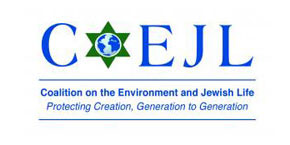
Picture courtesy columbus.gov/greenspot/
GreenSpot was founded in 2008 by former Columbus Mayor Michael Coleman as a place where people of the city can go to learn how to live, work, and commit to being green. Becoming certified as A GreenSpot is open to anyone from households, to businesses, to community groups. There are a list of commitments that must be made depending on the type of organization, but once they are met the application process can begin.
Recently, on January 30th, Columbus St.Mary School became a GreenSpot. The conversation first started in October of 2016 with Rebecca Mellino and the GreenSpot program. Between October of 2016 and January of 2017, members of GreenSpot, and Jerry Freewalt, head of the Catholic Creation Care team, came and spoke to the students about the program. Once the students became engaged and excited about the program, the school has had no difficulties keeping up with the responsibilities.
The students recycle and compost after breakfast and lunch. They rotate during recess and walk through the halls collecting the recyclables into bigger recycling bins. It is more than just the students that have gotten involved though. Teachers were given information on how to teach the different grade levels on how being green related to each of the students. Additionally, the staff members take turns delivering the recycled materials from the school to a drop off at Kroger about four times a week. Parents play an essential role as well, as they pitched in to buy small recycling bins for the classrooms and bigger bins for the cafeteria. The school also has plans to start a garden next to their building. Once it is built, they will have Boy Scouts, 4-H groups, and Night to Columbus to help care and maintain for the garden.
Christina Hickey is an art teacher at the school who is also in charge of marketing. She spearheaded the GreenSpot program and got staff members and students involved. The school’s student council is comprised of 4th through 8th graders that meet once or twice a month to talk and help out with recycling. Stepheny and Stephen are 6th grade student council members at St.Mary school who both recycle and compost at home. When interviewed, they both stated that they’re excited about the garden that is going to planted next to their school. Rose, a 4th grade student council member, was asked what it means to care for God’s creation and responded by saying “It’s really important. He made this for us. I don’t think we should trash it. I think we should cherish it.” Along with making the school a greener place, this program has made lasting impacts on students as well. Eayual, an 8th grade student council member that helps out every day stated that everyone should “think of the Earth as your life, take care of our life and don’t slowly destroy it.” He plans on attending Bishop Hartley high school where he aims to get students involved in recycling and caring for the Earth there as well.
To learn more about GreenSpot and their goals and purposes, click here. Additionally, Christina Hickey who lead the GreenSpot initiative at St.Mary School can be reached at chickey@cdeducation.org for information on how to implement this program. To keep updated on St.Mary School and GreenSpot, follow their Twitter accounts at @stmaryschoolgv and @greenspotcbus.








